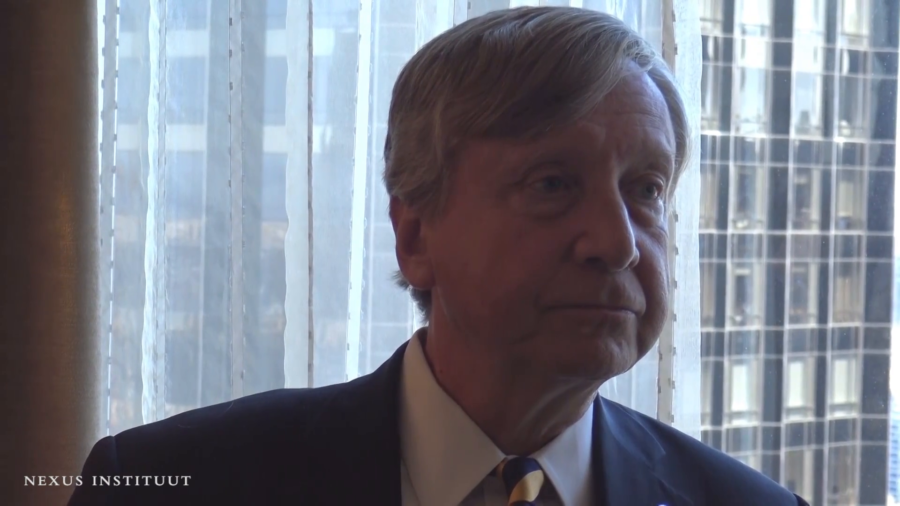Rob Riemen: You wrote a huge book on democracy and the history of democracy in America. When you read that phenomenal book, one of the things you start to realize that everything that’s going on now with Trump and the GOP, Republican Party, and that in a certain way, there is not that much new. What’s going on in American democracy that you always have had those extremes?
Sean Wilentz: Well, there are always these tensions in American life. Tensions about ethnicity, of class, of race to be sure, that get recombined into different permutations and combinations of those forces. They evolve, they take on different shapes. But they’re there, and they’re always there. I don’t think we’ve had anybody quite like Donald Trump before, in terms of the politics of celebrity, which is what I think he’s really about. It’s not simply that he’s rich. We’ve had rich people in politics before. He’s not simply a businessman. We’ve had businessmen in politics before.
But to be able to build up this kind of demagogic celebrity, that is something that we’ve never quite seen before in quite that way. But he’s playing on very old themes. He moved up in the polls very dramatically when he started talking about Mexican immigrants and building a wall and all the rest of it, tapping into a kind of nativist frustration that’s been there in American politics for a very long time.
It’s combined with an anti-political, or anti-politician, note which always has been a part of American nativism, I should add. I mean, nativism is not only about the immigrants. It’s also about the corrupt political system that is [?] with the immigrants, that lets them in. He’s played that to a T. So in some ways, you could look at Donald Trump and look at the nativist movement of say the 1850s, and imagine not much has changed. That’s true. But the situation is different, and Trump is different, and the kinds of…you know, America’s different. So, mutatis mutandis. But the themes are still very much there.
Riemen: What is not different is that when Alexis de Tocqueville came to America and wrote his great book On Democracy in America, he wrote it for Europeans. He wrote it, as he writes in his preface, that we Europeans have to understand what’s going on in America because it will come to Europe as well. Now with these elections, you hear a lot of times, the system is broken. How democracy’s dysfunctional. What is true about that? Again, for us Europeans important to know because you know, it may come to Europe as well.
Wilentz: I don’t think that American democracy’s broken. I think American democracy’s in a crisis at the moment, a political crisis. But it’s going to be worked out one way or the other. They say there’s nothing bad with America that one good election can’t cure. Well, that’s an optimistic view; it’s also mine. You can also have a bad election.
But at the moment, 2016, I do think we’re at one of those crossroads, where… I mean, Lincoln talked about the house divided in 1858; it was about slavery. The country was going to become either one thing or the other. I think we’re at a crossroads like that now in 2016. If we go in one direction the Republican Party, which has become a very very conservative party, to say the least, will have control of every level of American government and would then retake the the Supreme Court. That would be a very different outcome than if the Democrats won. But the Democrats would then be appointing people to the Supreme Court. Would presumably have control of the Senate as well as the White House. And maybe even make gains in the House. Those are starkly different paths, given the the nature of the parties today. So we are at that moment right now but. But what we see as the dysfunction I think is just a prelude to the settlement of that crisis, one way or the other.
Further Reference
Democracy Today in the USA event page
